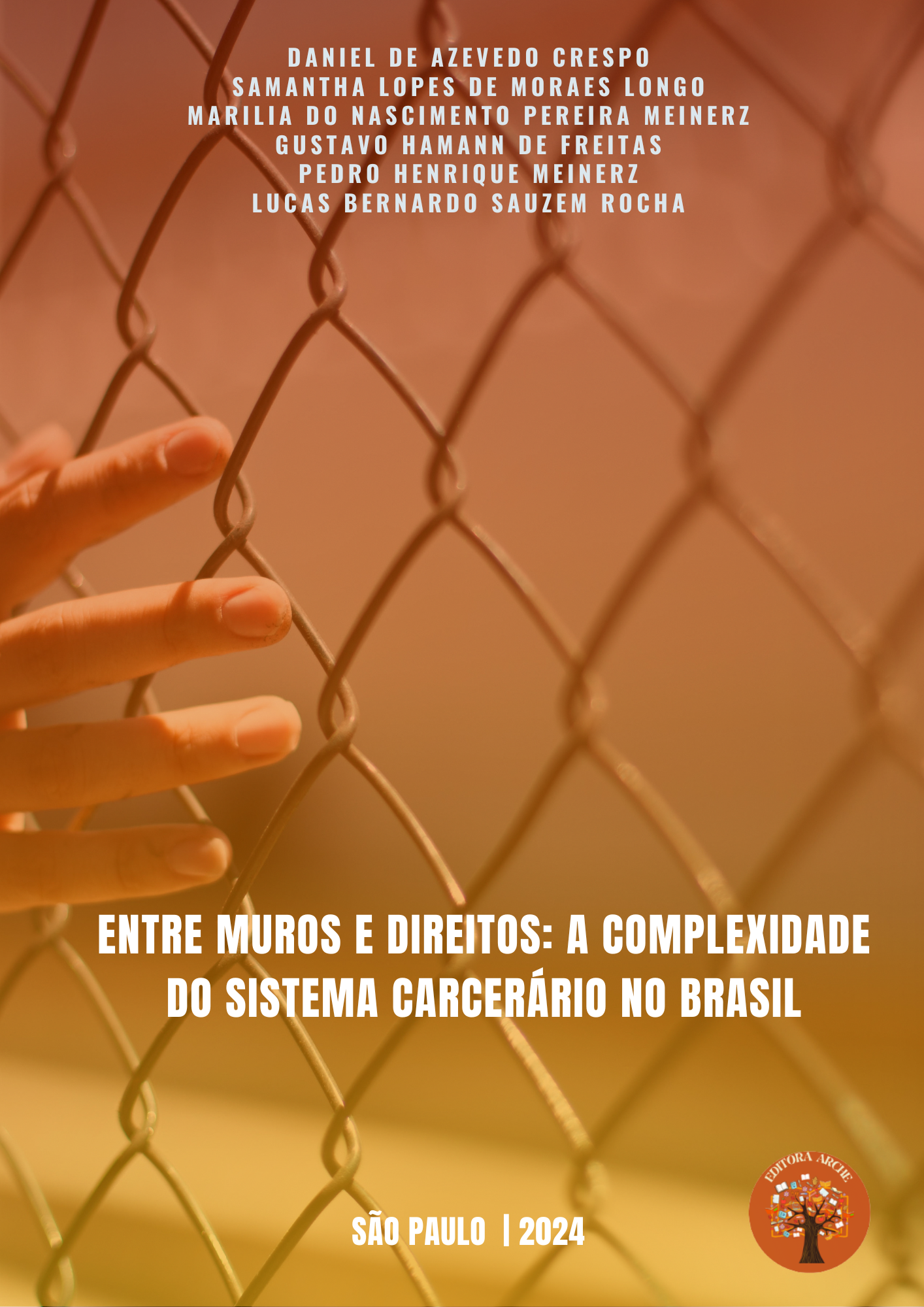BETWEEN WALLS AND RIGHTS: THE COMPLEXITY OF THE PRISON SYSTEM IN BRAZIL
Keywords:
Prison system. Brazil. Human rights. Inequality. Public policy.Abstract
The digital book "Between Walls and Rights: The Complexity of the Prison System in Brazil" delves into the intricate issues that permeate the Brazilian prison system. Over the next few pages, we will explore in detail the various aspects of this system, from overcrowding and prison conditions to the psychological and social impacts of incarceration, including the effects on families and communities, in addition to discussing the discrimination and inequality present in this context. In addition, examples of successful programs in reducing recidivism and social integration of those released from the prison system will be presented.
Initially, in the section, Overcrowding and Prison Conditions, we will address in detail the issue of overcrowding in Brazilian prisons and the degrading conditions faced by inmates. We will discuss the lack of adequate infrastructure, the scarcity of human and material resources, as well as the direct impacts on the health and dignity of prisoners.
Next, we will explore the Psychological and Social Impacts of Incarceration, the profound effects of incarceration on the mental health and psychological well-being of inmates. Additionally, we will analyze the consequences of isolation, violence and social stigma on the mental health of prisoners, as well as their impact on family and community relationships.
Next, in the section: Social Impacts of Incarceration on Families and Communities, the impacts of incarceration will be examined not only on inmates, but also on their families and communities. We will address issues such as family distancing, the stigma associated with incarceration and the challenges faced by family members in the social reintegration of former inmates.
In the item, Discrimination and Inequality in the Prison System, we will discuss the discrimination and inequality present in the Brazilian prison system, highlighting the representation of non-white individuals, especially black and poor people in incarceration statistics. We will analyze how these factors contribute to the reproduction of social and racial inequalities in the prison context.
Finally, we will present examples of programs and initiatives that have proven effective in reducing criminal recidivism and promoting the social integration of prison inmates. We will analyze the strategies adopted and the results achieved, highlighting good practices that can be replicated and improved.
By completing this work, we hope to have provided a comprehensive and detailed view of the complexity of the Brazilian prison system. More than that, we aim to contribute to the public and academic debate on prison policies, promoting critical reflection and proposing solutions that aim to promote social justice, human rights and the effective reintegration of individuals into society.
This digital book is an essential tool for students, researchers, professionals in the legal field, public policy, psychology, sociology and all those interested in understanding and transforming the prison system scenario in Brazil.
Downloads

Downloads
Published
How to Cite
License
Atribuição CC BY
